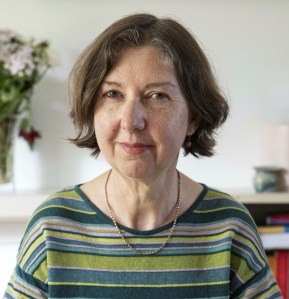Peeling back the layers: Uncovering a family’s past
Monica Raszewski’s latest novel delves into our longing for acceptance and how our closest relationships can often have conflicting values and beliefs.

If AI, rather than just I, were writing a review of Crimson Light Polished Wood – Monica Raszewski’s transcendent and lyrical exploration of women in love (thank you, Mr Lawrence) – here’s what it would say, according to AI Overview:
“Leonora has relocated to Melbourne from London and falls in love with Margaret, a fellow teacher who three years later dies of cancer. While still grieving for Margaret, Leonora meets and befriends Anna, the Polish woman who lives next door.”
But if any work of fiction ever called for the human touch, this is such a one. Anticipate a warm bath of words and images that evoke and glory in the sensation of touch.
Steeped in empathy, Crimson Light Polished Wood presents an array of characters beyond any machine’s ability to simulate that quality: Margaret’s mother, the bitter Mrs Renfrew; young Lydia (clearly drawn from the author’s own inquisitive book-passionate childhood); and a host of others.

You might like
As the story begins with the agonies of a terminal cancer patient (no attempt here to prettify or dignify the physical dissolution of a well-loved one), I forewarn that you do not come to this work expecting Heidi meets Pollyanna.
While childhood is given full play, and adulthood its proper measure of joy, a deep darkness descends as the end of Margaret’s time portends division and rancour for those to whom she was bound in life.
Even when Raszewski, like a violin virtuoso, plays her saddest notes, she does so with an awesome mixture of plangency and particularity, as in this beauty: “White carnations were for death, they were the flowers to take to funerals and cemeteries.”
Although her novel paints a rich interior, its exterior is noteworthy too, defying the cliché that you can’t judge a book by its cover.
the narrative wends its way from tales of migration, to delight, to the shock of bereavement and the aftershocks of familial strife
Yet this one you can: as you can see for yourself – shelves adorned by a miniature house terrace, a period alarm clock, a wooden apple and an apple-shaped wooden heart, overseen by a mask that may just be a kabuki doll – will whet your curiosity for the ample riches to be found inside.
A treasure trove awaits lovers of literature. The titles of cherished classics – Jane Eyre, Alice in Wonderland, Great Expectations and many others – lie scattered about as the narrative wends its way from tales of migration, to delight, to the shock of bereavement and the aftershocks of familial strife.
Dwelling on the latter for a moment, I can recall no books in recent years that more skilfully depict the impact that a relative’s loss has on their family circle. As many will know, a deceased person’s will can expose the brittleness of blood ties and prompt the most extreme reactions in otherwise reasonable people.
Immortals such as Leo Tolstoy and John Galsworthy succeeded in their portraits of family life by bridging the universal and the particular.
Here, Raszewski has done no less. Universal emotions play out in a particular time and place: middle-class Melbourne suburbia from the 1960s to the ’80s. Hers is an uncommon talent, confident enough to insert poetic invention into the warp and weft of her prose – and more than once it brought this reviewer to the edge of tears.
There are significant moments of elation too: somewhere she has unearthed the existence of a long-forgotten volume titled The Young Visiters [sic], written in 1890 by one Daisy Ashford, aged nine. What a find!
Spring is coming. The sap is rising. Treat yourself to a taste of humanity that flows with the richness and energy of prose, both honeyed and honed. It’s a taste that, once acquired, will have you hungering for more.
Crimson Light Polished Wood by Monica Raszewski, Transit Lounge, $32.99.
Free to share
This article may be shared online or in print under a Creative Commons licence

